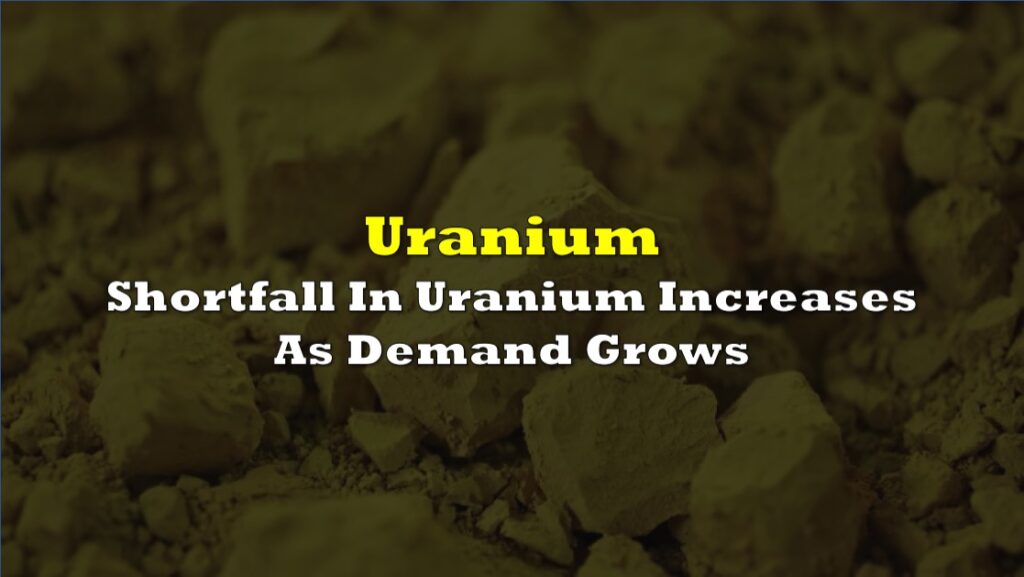Germany, Poland, and a few other EU countries are lobbying for restrictions on Russian nuclear energy, as the EU seeks for new methods to cut the Kremlin’s revenue in the aftermath of Moscow’s invasion of Ukraine.
In the aftermath of Russia’s war with Ukraine, the EU27 sanctioned Russian seaborne oil and coal, and severely reduced purchases of natural gas from Moscow. Some countries, however, believe that more should be done.
“Across the EU, we must keep making ourselves independent from Russia,” Robert Habeck, the German economy and climate minister, said over the weekend. “The nuclear sector is still outstanding… Nuclear technology is an extremely sensitive area, and Russia can no longer be seen as reliable partner within it.”
The move comes after Germany shut down its last three nuclear power facilities over the weekend as part of its shift to renewable energy sources such as wind and solar, which has sparked concern both at home and abroad.
The debate is always complicated for the EU, since any penalties against Russia must be approved unanimously. During prior discussions, Hungary and Bulgaria required more time and persuasion, casting doubt on the entire process.
Hungary declared in August that it would build two new nuclear reactors with the Russian state-owned business Rosatom, emphasizing the complexities of the situation.
Poland and the Baltic States also called for sanctions on civil nuclear energy activities, as well as bans on diamond imports from Russia, the provision of information and communication technology services to Russian state firms, and oil imports via the Druzhba pipeline, according to a document obtained by CNBC.
“Between March and December 2022, Russia exported just over $1 billion-worth of materials and technology of relevance to the nuclear energy sector,” the Royal United Services Institute, a think tank, said in a report in February. “This trade included exports to members of NATO and the EU.”
The report also stated that the value of Russian nuclear-related exports has not only not decreased since February 2022, but that it may be increasing, with a handful of loyal customers still keen to do business with Russia’s nuclear sector.
In nudging Warsaw towards that direction, the US Export-Import Bank and the US International Development Finance Corporation have signed letters of intent to finance up to $3 billion and $1 billion, respectively, to Orlen’s Synthos Green Energy project in Poland. It intends to build approximately 20 small BWRX-300 modular reactors designed by GE Hitachi Nuclear Energy.
The cooperation of US financial institutions, according to Orlen CEO Daniel Obajtek, “shows the credibility of the process” of generating nuclear energy.
According to US Ambassador Mark Brzezinski, Russia’s actions against Ukraine about 14 months ago underscored the necessity to shift toward safe and reliable energy sources.
Coal mining is one of Poland’s greatest employers, employing over 80,000 people and supplying roughly 70% of the country’s energy, and Polish Prime Minister Mateusz Morawiecki stated that the industry will continue to ensure power security. However, he emphasized that global climate concerns and European Union rules are urging a change to renewable and clean energy, which the nuclear reactors plan is assisting with.
Poland’s government and the US Westinghouse Electric Company inked a pre-design agreement in February for the central European country’s first big nuclear power station, which will utilise the American company’s technology. Construction will begin in 2026, with the goal of supplying the electricity system by 2032.
11th sanction package
In the 14 months following Russia’s invasion of Ukraine, the EU has imposed ten packages of sanctions on Russia, with a new wave of measures in the works.
The EU’s chief executive, European Commission President Ursula von der Leyen, previously stated that the 11th package would focus on preventing circumvention of current limitations, particularly for spare parts and equipment used by Russia on the battlefield against Ukraine.
When asked if a fresh set of steps aimed at Russia will include nuclear energy, a European Commission spokesperson stated that the institution has no comment on ongoing secret conversations.
“The preparations for the 11th package are ongoing,” the spokesperson said, “to have it all done and ready it takes time.”
Information for this briefing was found via CNBC, Reuters, ABC, and the sources mentioned. The author has no securities or affiliations related to this organization. Not a recommendation to buy or sell. Always do additional research and consult a professional before purchasing a security. The author holds no licenses.









